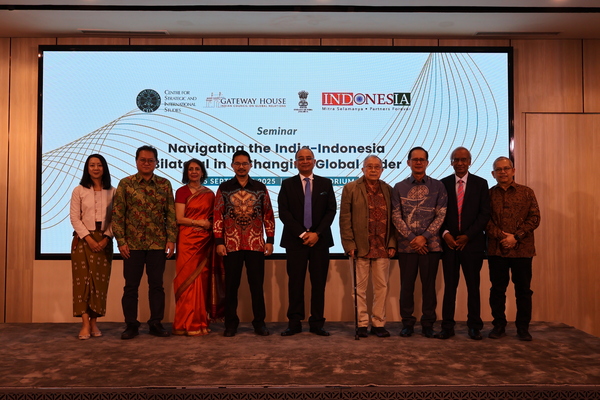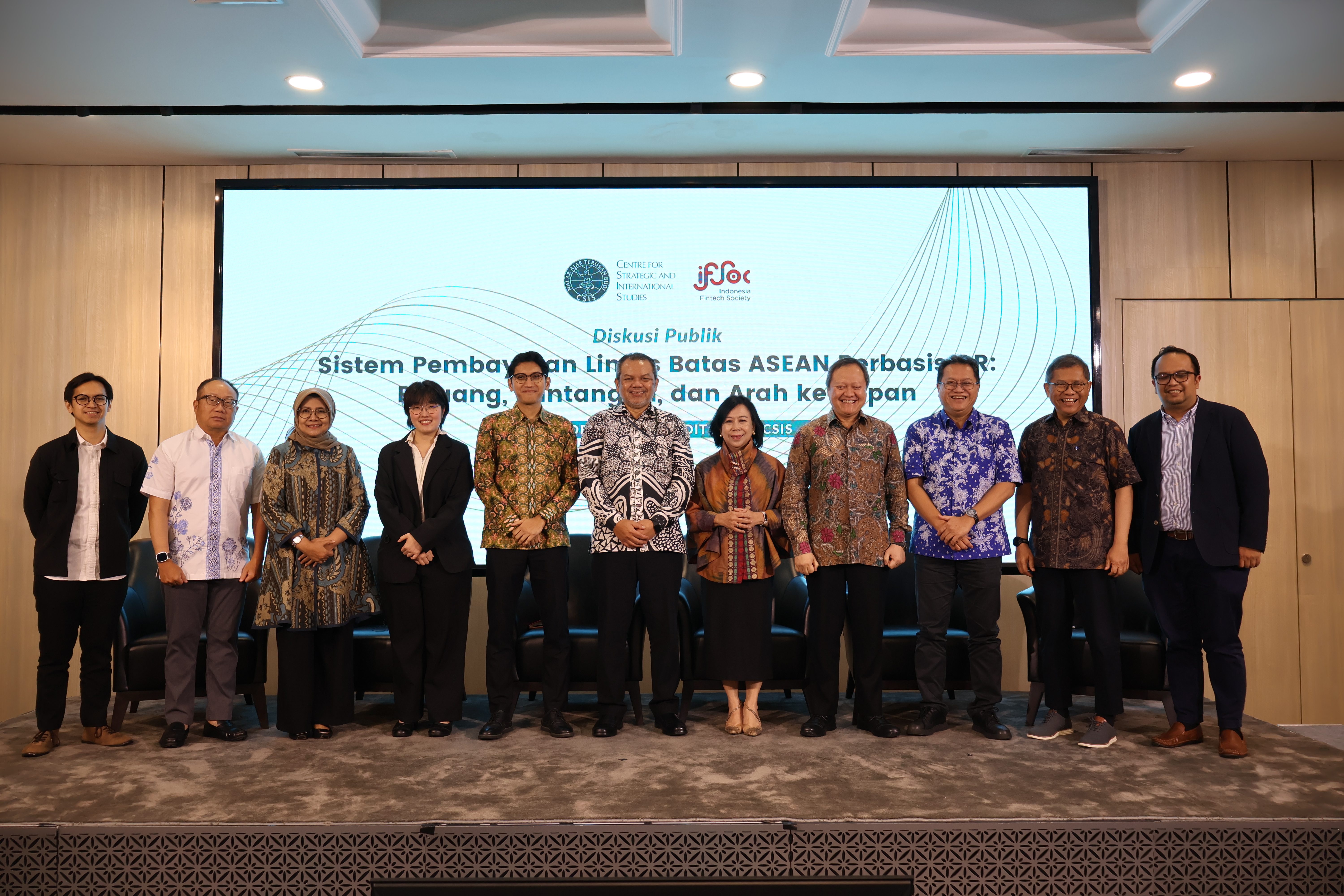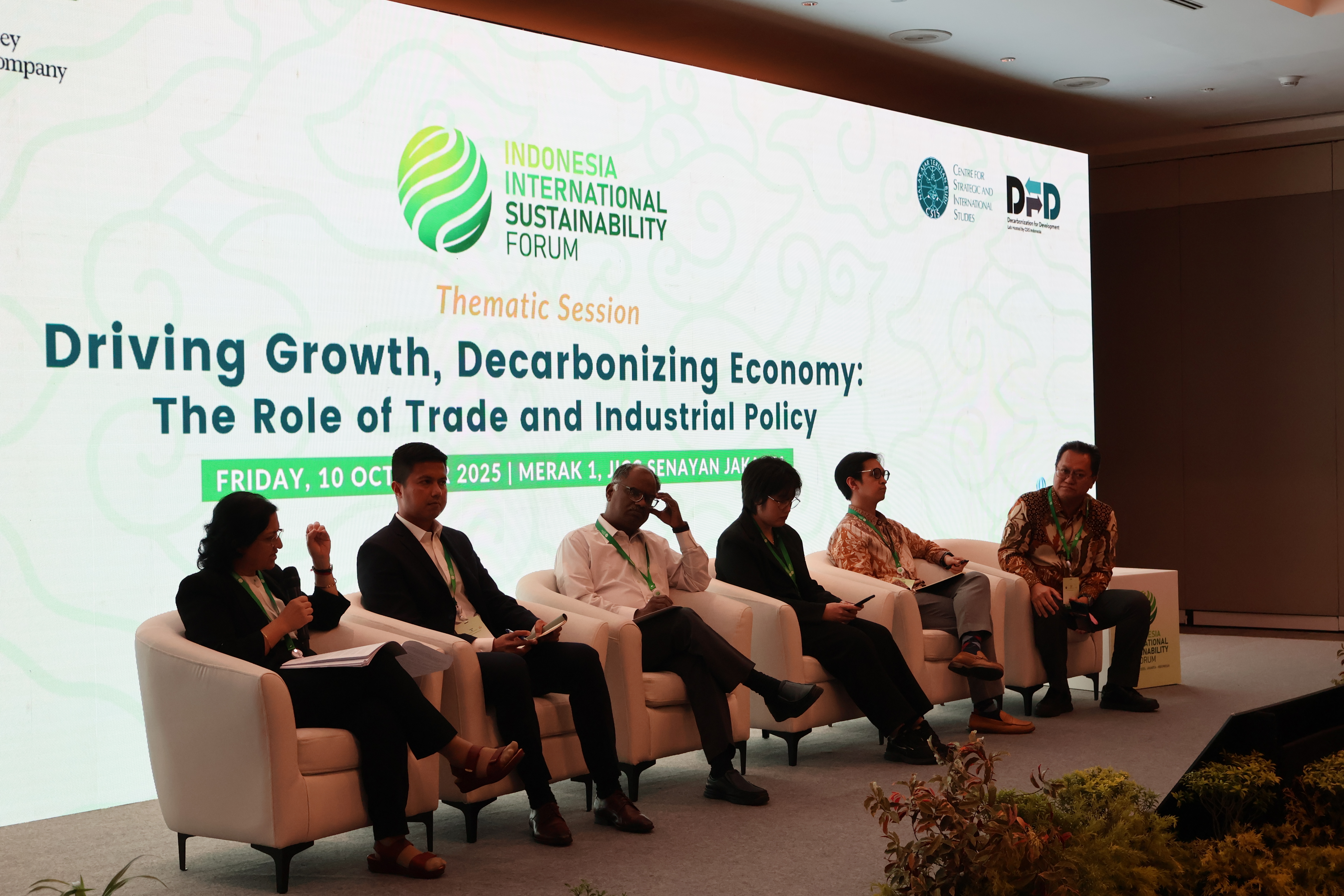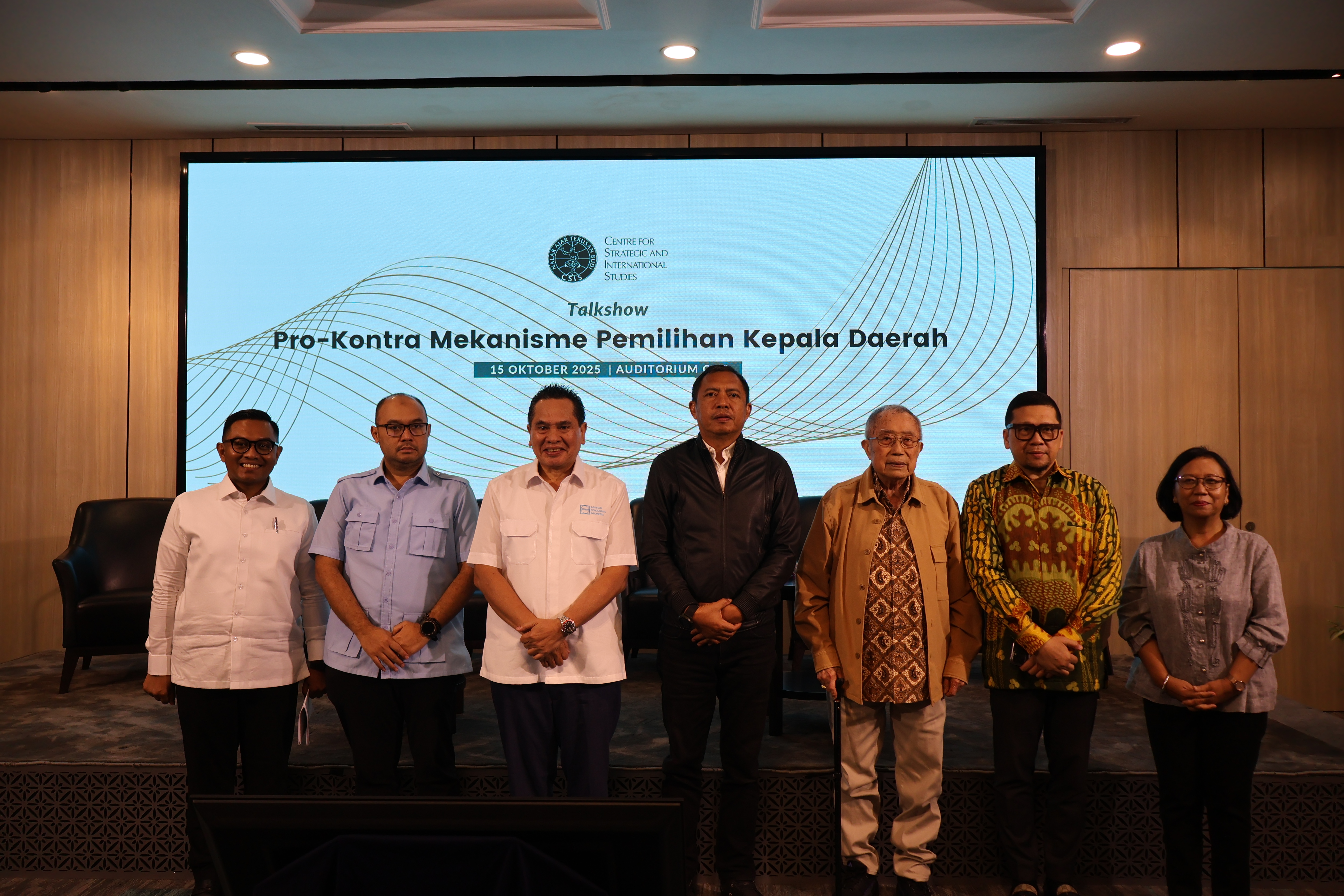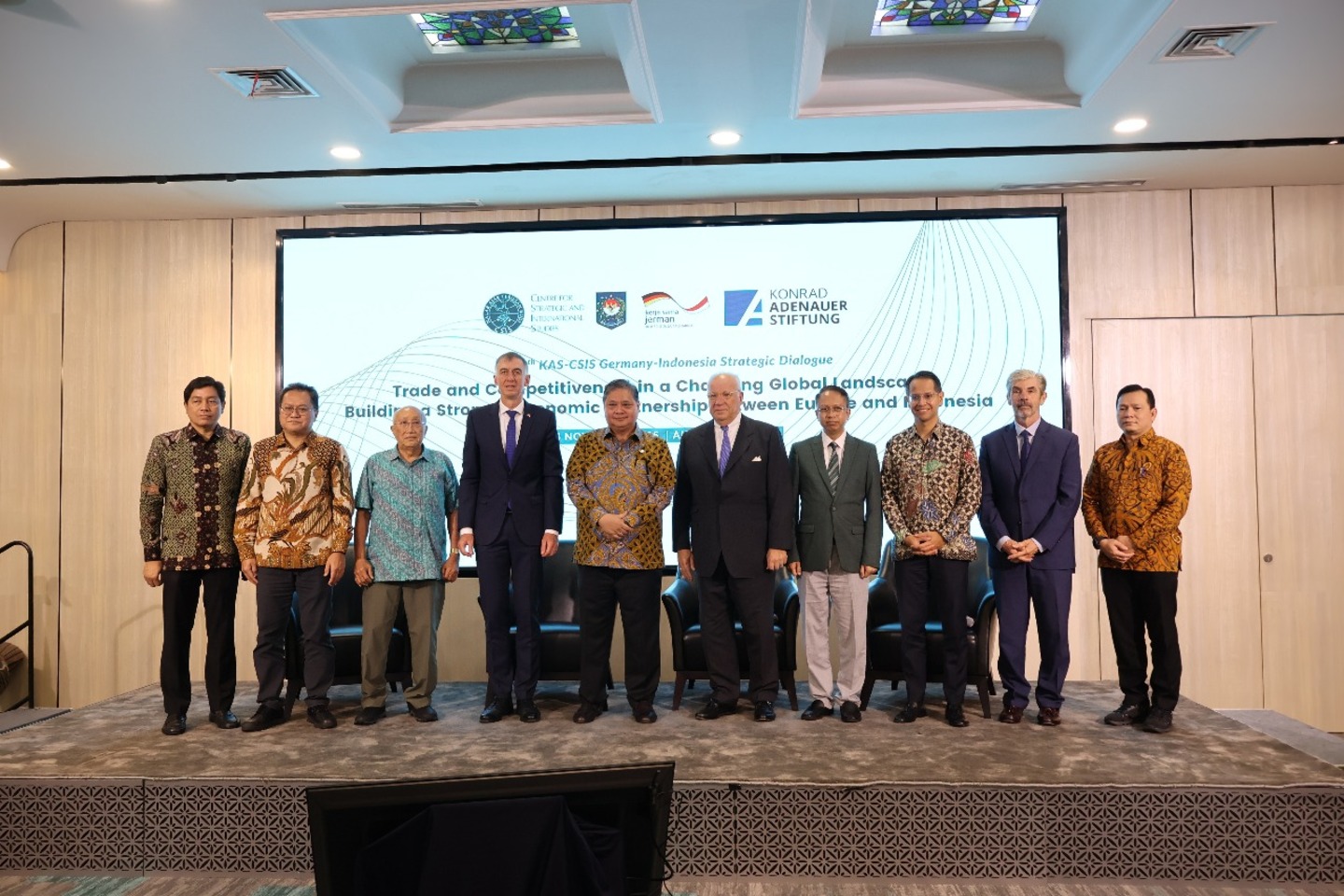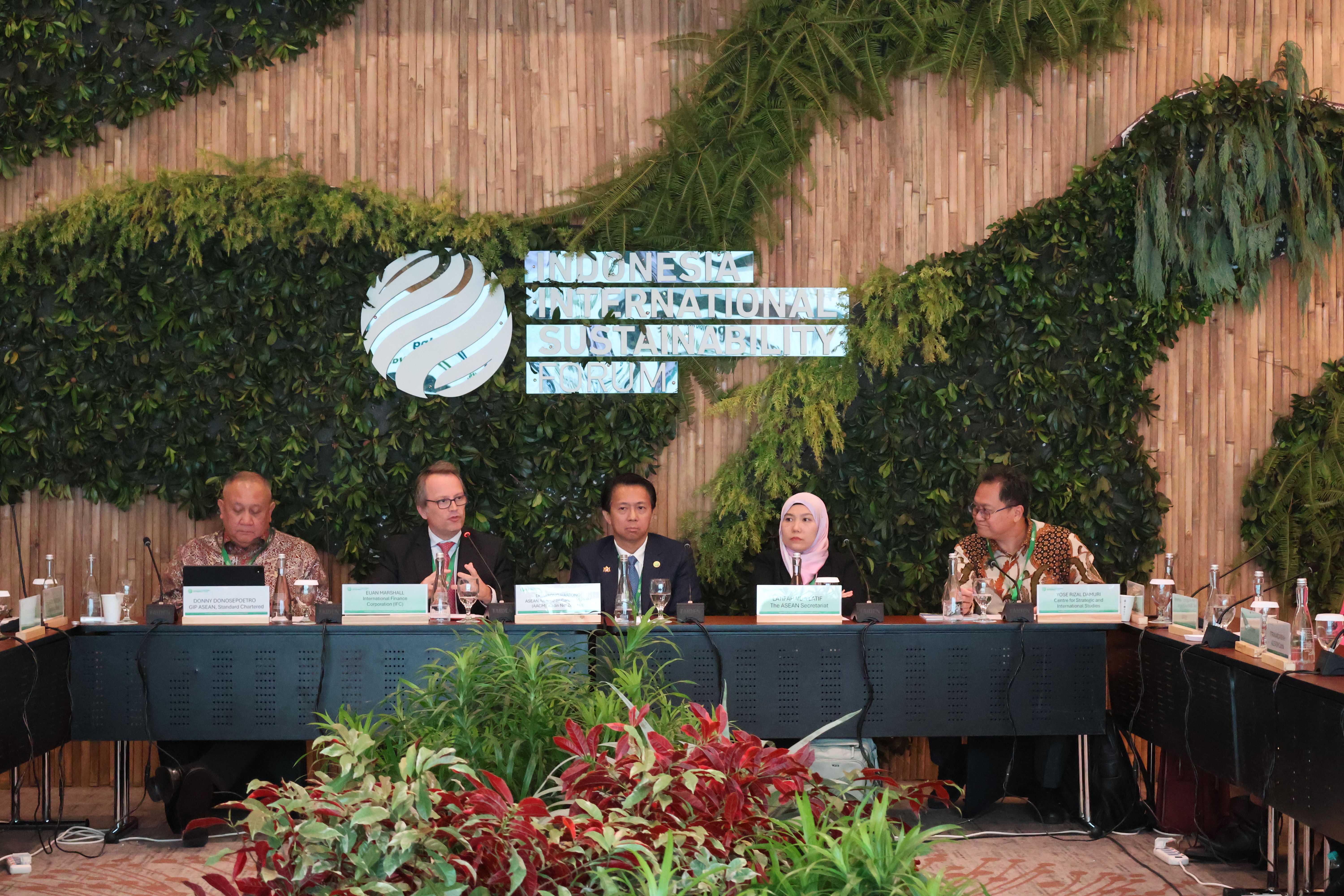
Jakarta, 10 Oktober 2025 – Centre for Strategic and International Studies (CSIS) Indonesia and The Green Investment Principles (GIP) Southeast Asia Chapter has concluded the high-level dialogue on Green Financing at the Indonesia International Sustainability Forum (ISF) 2025 with a resounding success through a collective multi-stakeholder engagement. With the theme "Accelerating Green Finance in ASEAN: Navigating Geopolitics, Policy Shifts, and Private Sector Leadership," the event served as a catalyst in fostering dialogue on policy alignment and innovative approaches to financing the energy transition and sustainable infrastructure, examine the international geopolitical and political economy dynamics shaping green finance initiatives in ASEAN region, reflect on the current landscape of financial instruments in ASEAN, including the role of carbon market, and identify pathways for advancing regional cooperation and strengthening green finance initiatives Countries within ASEAN are among the fastest-growing economies in the world, experiencing rapid industrialization which has led to an immense amount of energy consumption primarily sourced from fossil fuels.
Chair of the GIP ASEAN Chapter, Mari Elka Pangestu, emphasized ASEAN’s urgent need to address climate challenges while sustaining economic growth and the region’s high vulnerability to climate change and dependence on fossil fuels, noting the significant financing gap between the $422 billion needed by 2030 and current inflows of only $3–6 billion annually. Despite setbacks such as the U.S. withdrawal from global climate funds and new trade barriers like the EU Carbon Border Adjustment Mechanism, Mari Pangestu stressed that ASEAN has strong foundations, such as the ASEAN Taxonomy for Sustainable Finance and Green Investment Principles (GIP), to attract green investments. She called on ASEAN to strengthen regional cooperation, mobilize large-scale financing through blended and innovative instruments, and position itself as a global leader in sustainable development by aligning policies, expanding project pipelines, and shaping international climate finance standards.
In this discussion, the speakers included Donny Donosepoetro OBE, CEO Standard Chartered Indonesia; Latifahaida Latif, Assistant Director for Analysis and Monitoring on Finance and Socioeconomic Issues of The ASEAN Secretariat; Euan Marshall, Country Manager Indonesia at International Finance Corporation (IFC); and Dharsono Hartono, Permanent Chair of AACM, Head of Kadin Net Zero Hub. The discussion was moderated by Donny Donosepoetro OBE, CEO Standard Chartered Indonesia, and Yose Rizal Damuri, Executive Director of CSIS Indonesia. The participants consisted of stakeholders from the government, financial institutions, and the private sector.
Key Points from Speakers:
Donny Donosepoetro OBE – CEO, Standard Chartered Indonesia
The region is advancing the ASEAN Taxonomy Version 3, a critical framework for defining sustainable activities, though adoption across all member states is still in progress. A key objective is ensuring the regional taxonomy aligns with international standards to foster credibility and attract global capital. The launch of the PACE platform is a significant development, designed to fund the ASEAN Power Grid and serve as the backbone for regional green energy connectivity and integration.
Latifahaida Latif – Assistant Director for Analysis and Monitoring on Finance and Socioeconomic Issues, The ASEAN Secretariat
ASEAN, through the ACMF, has introduced standards for Green, Social, Sustainability, and Sustainability-linked (GSS+) bonds. This initiative is designed to mobilize capital for sustainable projects across the region.For the energy sector, ASEAN is pursuing a more pragmatic and realistic taxonomy. This approach acknowledges the diverse economic realities of member states while advancing the green transition.
Euan Marshall – Country Manager Indonesia, International Finance Corporation (IFC)
The need to emphasized the critical role of blended finance in de-risking investments and attracting private capital to ASEAN climate projects, especially amidst a challenging geopolitical landscape. One of the biggest challenges of green finance is the bankability of small-scaled green projects.
Dharsono Hartono – Permanent Chair of AACM, Head of Kadin Net Zero Hub
A green project must be commercially viable. If it’s not making a return, nobody’s going to invest. When talking about green financing, we need another variable. Not just return but how it’s impacting the climate, people, and biodiversity.
About CSIS Indonesia:
Founded in 1971, the Centre for Strategic and International Studies (CSIS) has gained recognition as an important research and policy institution both within Indonesia and internationally. For more than five decades, the evolution of CSIS has been closely linked to Indonesia's history, rooted in a deep understanding of economic, political, and social issues, including regional and international developments. CSIS has three research departments and two research units. The three departments are the Department of Politics and Social Change, the Department of International Relations, and the Department of Economics. The two research units include the Climate Policy, which currently serving as the secretariat of GIP ASEAN Chapter.
About Green Investment Principles (GIP) ASEAN Chapter:
Launched in 2018, The Green Investment Principles (GIP) is aimed to raise awareness about green principles in financing development projects. With its main secretariat in Beijing, and regional branches in Africa and Central Asia, the banking and financial sectors from various regions come together to engage in dialogue and cooperation on green finance. Given the challenges Southeast Asia faces in financing climate solutions, the GIP ASEAN Chapter, launched in 2023, plays a crucial role in involving the financial and banking sectors in the region to address these challenges.

